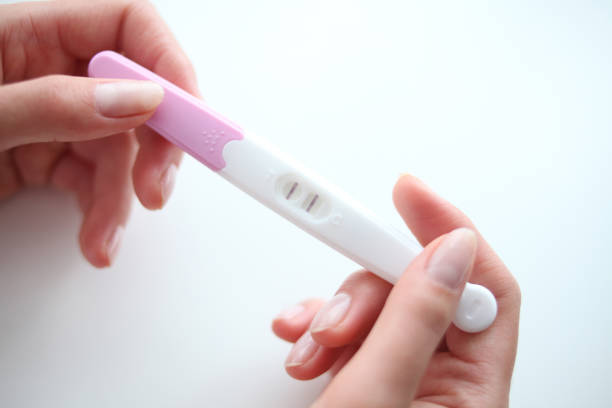Top 8 Signs of Early Pregnancy
Top 8 Signs of Early Pregnancy

Top 8 Signs of Early Pregnancy
Pregnancy is a unique and exciting journey, filled with anticipation and numerous changes. However, some are unsure of their status as the early signs can often be subtle and easily mistaken for premenstrual symptoms or other health issues. Understanding these signs can help determine if you might be pregnant and encourage you to take a pregnancy test for confirmation. Here are the top 8 signs of early pregnancy.
8 Early Signs of Pregnancy
Missed Period
One of the most obvious early signs of pregnancy is a missed period. If your menstrual cycle is regular and you suddenly miss a period, it might be time to take a pregnancy test. However, stress, significant weight changes, or certain medical conditions can cause missed periods.
Nausea
Nausea, often called morning sickness, is a classic pregnancy symptom. It can occur at any time of the day or night and typically starts around the sixth week of pregnancy. The exact cause of nausea during pregnancy is not known, but it is likely related to hormonal changes.
Fatigue
Feeling unusually tired is common in early pregnancy. The increase in progesterone levels can make you feel sleepy and exhausted. Your body is also working harder to support the growing embryo, which can contribute to feelings of fatigue.
Breast Changes
Early pregnancy can cause your breasts to become tender, swollen, or sore. They might also feel heavier or fuller. The area around your nipples, called the areola, may darken. These changes are due to the rising levels of hormones preparing your body for breastfeeding.
Frequent Urination
During pregnancy, your body increases the amount of blood it pumps, causing your kidneys to process more fluid than usual. This can lead to an increased need to urinate, which may begin as early as the first few weeks of pregnancy.
Mood Swings
Hormonal changes during pregnancy can affect your mood, making you feel more emotional or tearful than usual. Mood swings are common and can occur early in pregnancy, often resembling the emotional changes experienced during PMS.
Food Aversions and Cravings
Pregnancy can alter your sense of taste and smell, leading to food aversions or cravings. You might suddenly dislike foods you previously enjoyed or crave unusual food combinations. These changes are thought to be linked to hormonal fluctuations.
Light Spotting and Cramping
Some women experience light spotting and cramping in early pregnancy. This can occur when the fertilized egg attaches to the uterus lining, a process known as implantation. The spotting is usually light and short-lived, much lighter than a typical period.
Understanding Pregnancy Symptoms
While these symptoms can indicate early pregnancy, they are not definitive. The best way to confirm pregnancy is through a home pregnancy test or a visit to your healthcare provider. If you suspect you might be pregnant, pay attention to your body and track any symptoms you experience.
When can I take a pregnancy test?
If you have missed a period and are experiencing some of the other early signs of pregnancy, it might be time to take a pregnancy test. Home pregnancy tests are designed to detect the hormone human chorionic gonadotropin (hCG) in your urine. For confirmation, take the test a few days after your missed period. If the test is positive, schedule an appointment with your healthcare provider to confirm the pregnancy and begin prenatal care.
If you are pregnant, it is important to take care of yourself and your growing baby. This includes:
- Eating a Healthy Diet: Focus on nutritious foods that contain essential vitamins and minerals.
- Taking Prenatal Vitamins: These can help you get the nutrients needed for a healthy pregnancy.
- Avoid Harmful Substances: Avoid alcohol, tobacco, and other harmful substances.
- Staying Active: Gentle exercise can help you stay healthy and manage pregnancy symptoms.
- Getting Regular Prenatal Care: Regular check-ups with your healthcare provider are crucial for monitoring your pregnancy and the baby’s health.
Conclusion
Knowing the early signs of pregnancy can be the first step in a beautiful journey. While these symptoms can be indicators, they are not conclusive. If you suspect you might be pregnant, taking a home pregnancy test and consulting with your healthcare provider will provide you with the answers you need. Remember, each woman's experience with pregnancy is unique, and symptoms can vary widely.
